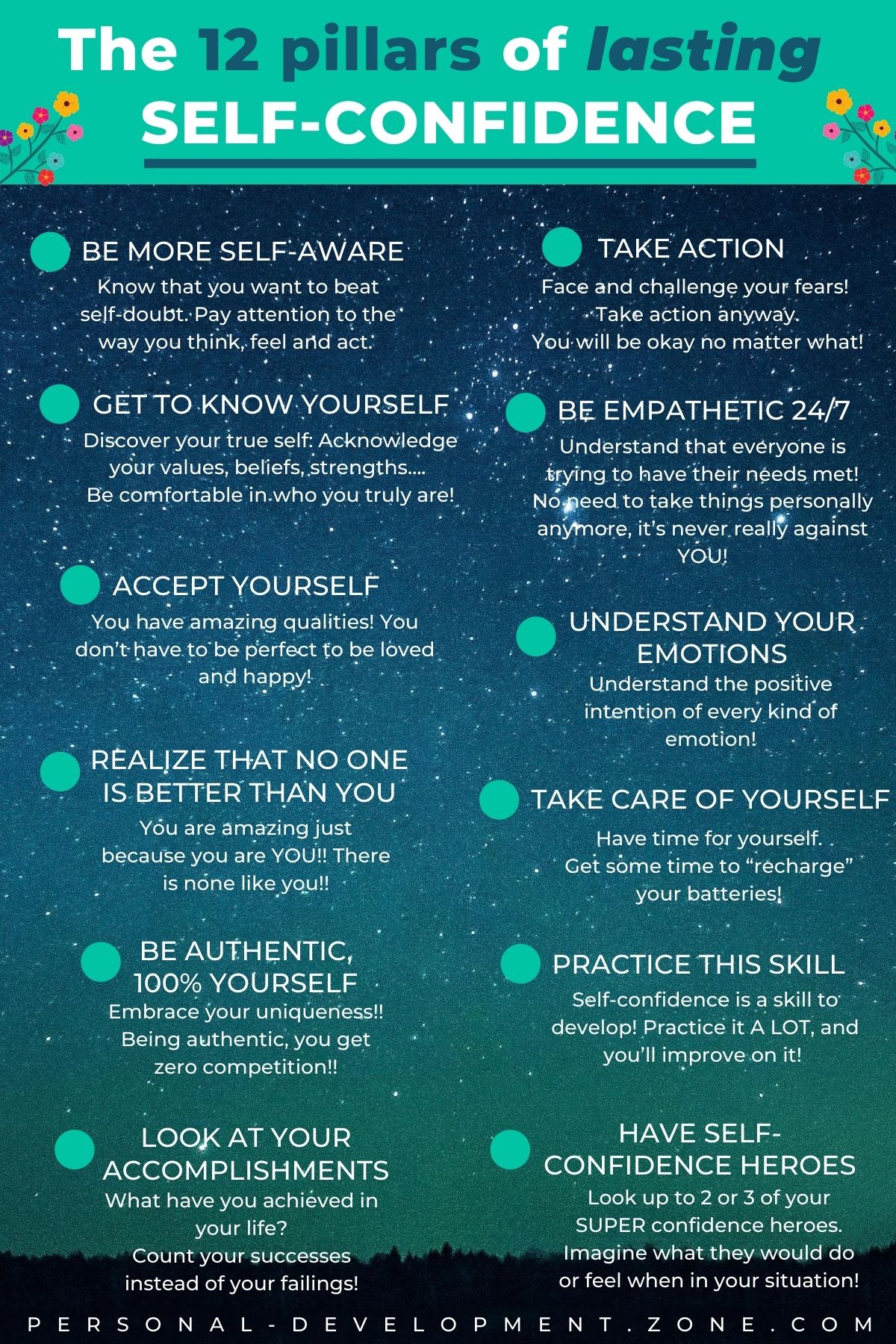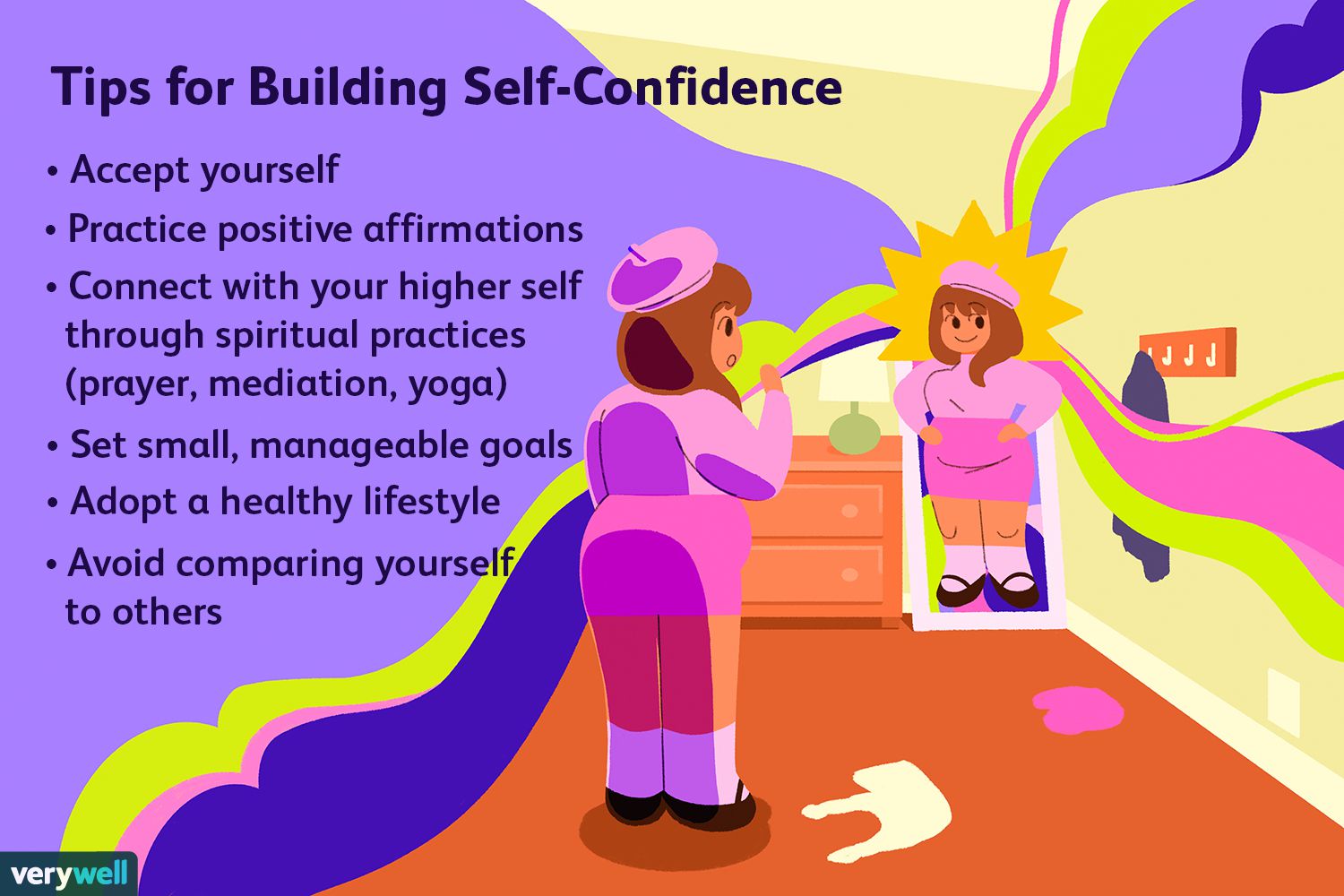Building Self-Confidence: A Comprehensive Guide to Empowering Yourself
:max_bytes(150000):strip_icc()/how-to-build-self-confidence-5209231-FINAL-fe2e0265fbed407da074f1345163ba21.jpg)
Self-confidence is the belief in your own abilities and worth. It empowers you to face challenges, take risks, and achieve goals. However, many people struggle with low self-confidence, which can hold them back personally and professionally. In this guide, we’ll explore practical strategies to help you build lasting confidence and unlock your potential.
Why Self-Confidence is Important
Self-confidence has a profound impact on various aspects of life:
- Better Decision-Making: Confident individuals trust their judgment.
- Stronger Relationships: High confidence fosters healthier communication.
- Increased Resilience: Confidence helps you bounce back from setbacks.
- Career Success: Employers value individuals who project assurance.
“With confidence, you have won before you have started.” – Marcus Garvey
How to Build Self-Confidence
1. Identify Your Strengths
Start by recognizing what you excel at. Make a list of your skills, talents, and achievements. Reflecting on your strengths can shift your focus from self-doubt to self-belief.
- Tip: Seek feedback from trusted friends or colleagues to uncover hidden strengths.
- Resource: Explore self-assessment tools like StrengthsFinder.
2. Set Achievable Goals
Goals provide direction and a sense of purpose. When you set and achieve small, realistic goals, your confidence grows. Use the SMART goal framework to ensure success:
- Specific: Be clear about what you want to achieve.
- Measurable: Track progress to stay motivated.
- Achievable: Keep goals realistic and within reach.
- Relevant: Align them with your personal values.
- Time-Bound: Set deadlines to maintain focus.
For example, instead of saying, “I want to be more confident,” try “I will speak up in one meeting every week.”
:max_bytes(150000):strip_icc()/how-to-boost-your-self-confidence-4163098-FINAL-7a66275c535d4f9288d7910f5fdf72a0.png)
3. Practice Self-Care
Taking care of your physical and emotional health can significantly impact your confidence. Prioritize:
- Healthy Eating: Nourish your body with balanced meals.
- Exercise: Regular physical activity boosts mood and energy.
- Adequate Sleep: Rest helps you feel rejuvenated and focused.
“Confidence is a habit that grows with consistent self-care.”
4. Embrace Positive Self-Talk
The way you speak to yourself matters. Replace negative thoughts with empowering affirmations.
- Examples of Positive Self-Talk:
- “I am capable of achieving my goals.”
- “Challenges are opportunities for growth.”
- “I am worthy of success and happiness.”
Writing affirmations in a journal can reinforce these beliefs over time.
5. Step Outside Your Comfort Zone
Confidence grows when you face your fears. Start small and gradually tackle bigger challenges:
- Take on New Responsibilities: Volunteer for a task at work or home.
- Learn New Skills: Enroll in a course or hobby you’ve always wanted to try.
- Speak Up: Share your thoughts during a group discussion.
Each accomplishment reinforces your belief in your abilities.
6. Surround Yourself with Positivity
Your environment and social circle play a crucial role in shaping your confidence.
- Eliminate Toxic Relationships: Distance yourself from people who belittle or discourage you.
- Build a Support Network: Connect with friends and mentors who uplift and inspire you.
- Consume Positive Content: Follow motivational speakers or read empowering books, such as The Confidence Code by Katty Kay and Claire Shipman.

7. Learn from Failure
Failure is not the opposite of success; it’s a stepping stone. Reflect on setbacks to identify lessons and improve future outcomes.
- Tip: Keep a “Resilience Journal” to document challenges and how you overcame them.
- Reminder: Even the most successful people, like Oprah Winfrey and Elon Musk, faced failures on their journey.
“Confidence doesn’t mean you’ll always succeed; it means you’ll try anyway.”
8. Master Body Language
Your body language can influence how others perceive you—and how you perceive yourself.
- Stand Tall: Maintain good posture to exude confidence.
- Make Eye Contact: It signals self-assurance and engagement.
- Smile: A warm smile boosts approachability and positivity.
Practicing these behaviors can help you feel more confident in social and professional settings.
9. Develop New Skills
Confidence often stems from competence. Identify areas where skill development can boost your self-assurance:
- Communication Skills: Join groups like Toastmasters to enhance public speaking.
- Leadership Skills: Take on leadership roles to build authority and confidence.
- Creative Skills: Pursue hobbies like writing, painting, or cooking to expand your capabilities.
10. Celebrate Your Successes
Acknowledge your achievements, no matter how small. This reinforces a positive self-image and encourages further growth.
- Create a Victory List: Write down daily wins to track progress.
- Reward Yourself: Treat yourself to something meaningful after reaching milestones.
“Confidence is earned, one victory at a time.”
FAQs About Building Self-Confidence
1. What causes low self-confidence?
Low confidence can stem from past failures, criticism, or comparison with others. It’s important to focus on self-acceptance and growth.
2. Can confidence be learned?
Yes! Confidence is a skill that can be developed through practice, positive habits, and mindset shifts.
3. How long does it take to build confidence?
Building self-confidence is a gradual process. Consistent effort over weeks or months can lead to lasting improvements.
Conclusion: Take Charge of Your Confidence Journey
Building self-confidence is an ongoing process that requires patience, dedication, and self-compassion. By implementing these strategies, you can transform how you see yourself and navigate life’s challenges with assurance.
Remember, confidence is not about perfection—it’s about believing in your ability to grow and succeed.
“Believe you can, and you’re halfway there.” – Theodore Roosevelt

